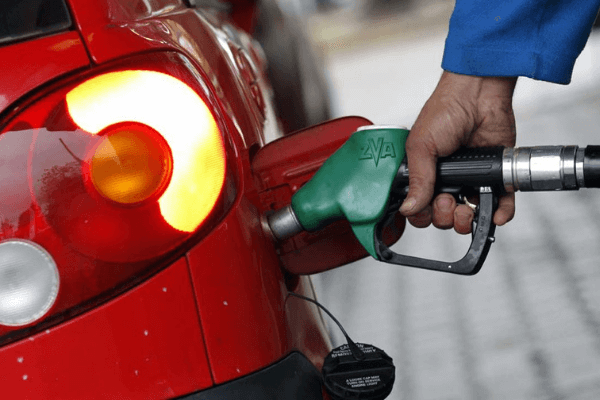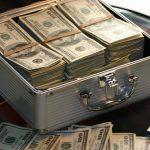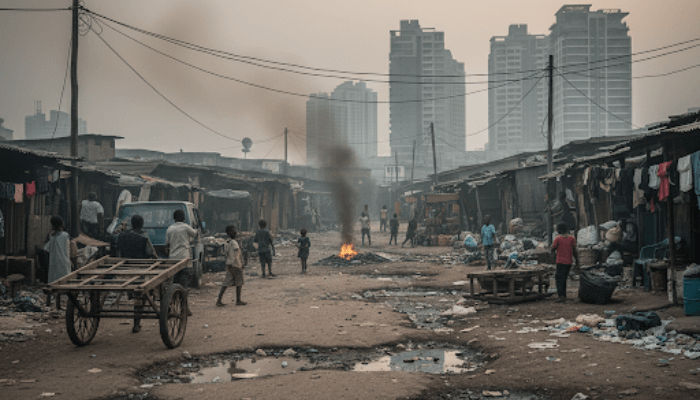Fuel subsidy is one of the biggest fiscal burdens on the nation. Between 2015 and 2018, the federal government sank N7.9 trillion importing petrol to augment supply from the country’s rickety refineries according to data from the National Bureau of Statistics (NBS). This was more than Nigeria’s entire 2017 budget of N7.2 trillion.
In series of recent media interviews, Mele Kyari, the group managing director of the Nigerian National Petroleum Corporation (NNPC), said Nigeria was dumping the reckless fuel subsidy programme, but without corroboration from Aso Rock, and oil prices in a flux, the government’s seriousness remains untested.
Kyari is saying the right things so far. According to him, the NNPC would source foreign exchange like any other company through commercial banks. It would sell petroleum products based on market realities indicating that the international price of crude oil will determine how much their derivatives are sold. A bridging cost would be handled through a price mechanism that allows for recovery of transport cost to remote locations in Nigeria.
Yet, the NNPC does not make government policy. While the minister of state’s presentation to the presidency helped to achieve the current downward review of the pump price of fuel, there is no telling that in an election year, the government will not sacrifice sound fiscal policy for political expediency. It is the reason electricity tariffs are subsidised because the previous government on the eve of an election, cancelled a planned tariff review and destroyed the electricity market. The government is picking the tab paying over N2 trillion to cover tariff and market shortfalls.
The Goodluck Jonathan administration attempted to remove subsidies in 2012 but met determined opposition from civil society and large swathes of the Nigerian population. While the policy may have been right, the perception of , pervasive corruption and the profligate spending pattern of that government starved the plan of mass support.
Prior to the 2015 elections, Muhammadu Buhari called the subsidy a scam but when he got into power, he quietly paid the subsidies without budget allocation for at least two years. He balked at paying marketers the N700 billion they claimed for previous supply in 2017 and they abandoned fuel importation. It became the sole task of the NNPC. Now fuel subsidy has messed up NNPC’s books, ballooning costs and creating doubts over remittances to the government.
When the economy slipped into recession in Q2 2016, Nigeria suffered an embarrassing fuel shortage that year even though it had reviewed prices in 2015 when oil prices plateaued, and the naira crashed so badly it exchanged for over N400 to $1. This year, the government plans to spend N450 billion on subsidies though Kyari now says the money will be used more productively.
Petrol consumption rose from an average of 35 million litres per day in 2015 to around 55 million daily, though Nigerians under Buhari have actually become poorer and the country less industrialised, consumption should have fallen. In reality, Nigeria is subsidising West African consumption and creating leakages that corrupt officials exploit.
Nigeria is in a fix because it continues to allow a good crisis go to waste. Oil prices fell below $30 a barrel in 2016 and despite counsel from many analysts to get out of fuel subsidy, Buhari ignored it causing a huge drain on the economy. The same opportunity presents itself and unlike previous times, Nigeria has been backed into a really tight corner.
Oil prices have fallen to 20-year lows on account of coronavirus.Nigeria is raiding its rainy-day fund to pay salaries. Reforms are easy to prescribe when the economy is in crises. Now the government has drafted a more realistic budget, cutting out wasteful expenditure items and becoming more frugal in spending. But when oil prices recover, will the old habit of irresponsible and decadent governance Nigerians have known return? Let’s hope this time, they are wiser.











